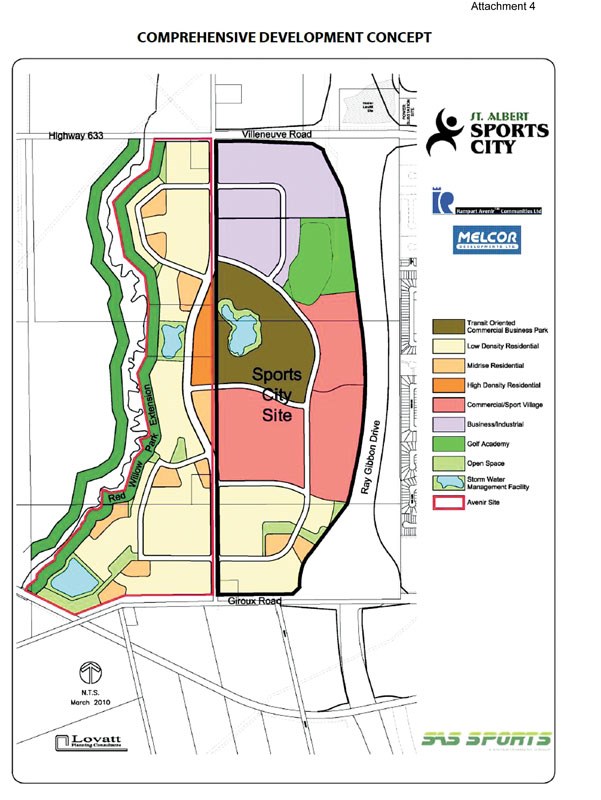City council wants to force a high-profile residential development to adopt a commercial component in order to get a required amendment to the city's municipal development plan.
Representatives from Rampart Avenir left city hall without comment after council voted 4-3 to require that their residential development be 20 per cent commercial.
"I think we have to ask the proponent to take a good hard look at the reality of trying to make this work," said Coun. Malcolm Parker, who pitched the idea to council.
Even though she liked it, Coun. Cathy Heron voted against the idea for it would draw out the approval process.
"I cannot support a further delay on this," she said.
The city accepted Rampart Avenir's application for an MDP amendment in January after nearly two years of back and forth negotiations with the company. Last week Rampart Avenir said the city would lose the project if council didn't approve its application when it returns to council July 11.
It's unclear what Monday's decision means for the future of Avenir, which is a mixed-use development proposed for St. Albert's northwest corner in conjunction with St. Albert Sports Village.
When addressing council before the decision, Rampart Avenir project director David Bromley explained the plan was to include 11 per cent commercial development within land designated as residential. This would occur mainly within a centrally located node that would combine commercial and office space with high-density residential.
Pushing the commercial component above 11 per cent would dilute the return on investment to a point below the comfort level of his investors, he told council.
Consultant Olga Lovatt, also speaking on behalf of Rampart Avenir, told council the landowners have worked very hard to create a project that will work for themselves and the city. She stressed it was time to move forward.
"You must realize that you don't own the land," she said. "The economics have to work."
Crouse fails to turn table
A few moments before council narrowly agreed to impose the requirement for 20 per cent commercial, Mayor Nolan Crouse tried to convince council to designate the entire area as commercial. He wanted to create a new designation similar to that used for Campbell and Riel business parks but absent the light industrial use.
Crouse insisted that non-residential is the proper use for the land in question. No one other than the landowner is demanding residential in that area, he said. Meanwhile council is being asked constantly for more non-residential land.
"I take exception to the threat of walking away," Crouse said. "Council, what are we being threatened by? The land's going to disappear?"
"There's no threat," Crouse stressed. "This is about us doing land planning. This is about us getting it right."
He lost the vote 6-1.
"Landowners have rights. This landowner has said repeatedly that they do not want this to be industrial or commercial," Heron said.
"If we approve this today, this land will sit empty for many, many years and we will not see the benefit of any growth in the city."
Coun. Wes Brodhead said he's agonized over the issue, which is really about the future vision for St. Albert.
"I would suggest that if we want to develop St. Albert, then we do it along a residential area. That to me is the competitive advantage of our community," he said.
People come to St. Albert to get away from the big city, so they can enjoy green spaces, he said.
"As much as they would like to see a more diversified tax base that will take away the pressure on the residential tax [payer], they don't want to do that at the risk of their quality of life," he said.
Crouse took exception to the implication that commercial businesses like car washes and warehouses detract from the quality of life.
Letter
Council also voted unanimously to require a letter of commitment from Rampart Avenir, promising to follow through on various elements of its project, such as the overall density and the inclusion of the transit oriented development. The letter is also to provide an outline of the clean technology concept.
Rampart Avenir had no issue with that motion, Bromley told council. The city's lawyer said such a document would be "difficult, if not impossible, to enforce."
"There is no harm in approving this motion," Heron said.




